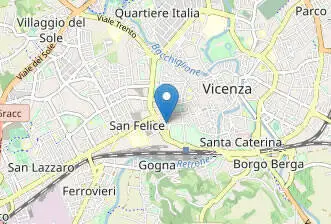
tel. +39 0444 327887
Partita IVA 03581700246
R.I. Vicenza n. 03581700246 – REA n. VI 336723
Capitale sociale € 15.000,00 interamente versato

FORTES project with Ministry of Education and Merit: NEW EUROPE
PROJECT NEW EUROPE is the new ambitious project that FORTES is going to realise, at the end of the co-designing phase with the Ministry of Education and Merit,
in the framework of the intervention
The project involves the fulfilment of customized pathways addressed to secondary schools in Italy, to foster initiatives for internationalization and in particular student mobility and exchange projects, funded by the European Union or other public or private entities. One of the aims of the initiative is to create a 'map' on which participants in the different types of projects can place their individual experience, also providing knowledge about the EU context.
The targets of the intervention are:
Regions: Lombardy, Marche, Piedmont, Apulia, Sicily, Tuscany, Veneto
Number of schools: 20
Number of classes: 400
Number of pupils: 8,000
Number of school staff: 160 teachers
Additional target audience: studenys' families, companies and institutions in the area
Number of school staff: 160 teachers Additional recipients: families of students, companies and institutions in the area
This project aims to directly reach young students, who are often far removed from the debate on European policies, but who will have the opportunity to be involved in mobility or exchange projects. This will help to teach students to read into the different European proposals, themes and initiatives as useful tools to understand the complex reality in which we move, and to experience how they will influence choices, opportunities and needs related to education, training, and work in their own life experiences.
As expressed, the main outcomes to reach are:
1: encourage young people's active citizenship by providing space for participation in the debate on the future of Europe with better knowledge and more critical thinking about their rights as citizens and the role of EU institutions;
2: to highlight how collaboration between different civil society organisations (such as schools, chambers of commerce, NGOs, companies) is an essential element of cohesion, in order to involve more and more people in European initiatives
3: provide space for students as future citizens to learn about the work of the European institutions and to form their own opinions on how the institutions should function in order to be more representative and accountable to citizens;
4: provide students as future citizens with the tools to have a voice in the construction of a new Europe, in line with the objectives of the Conference on the Future of Europe.


